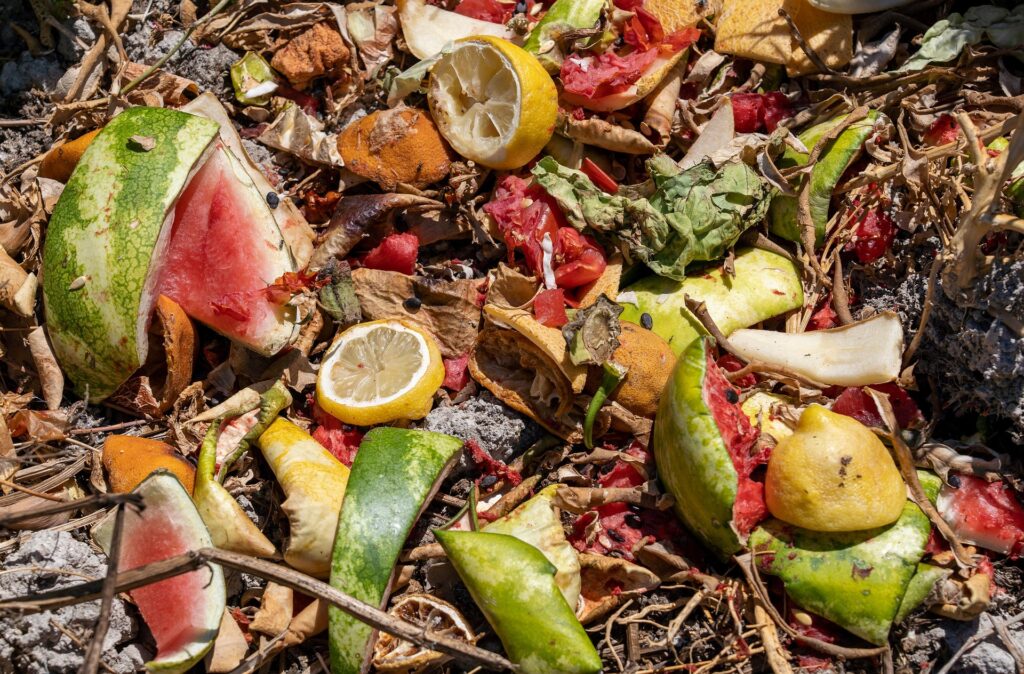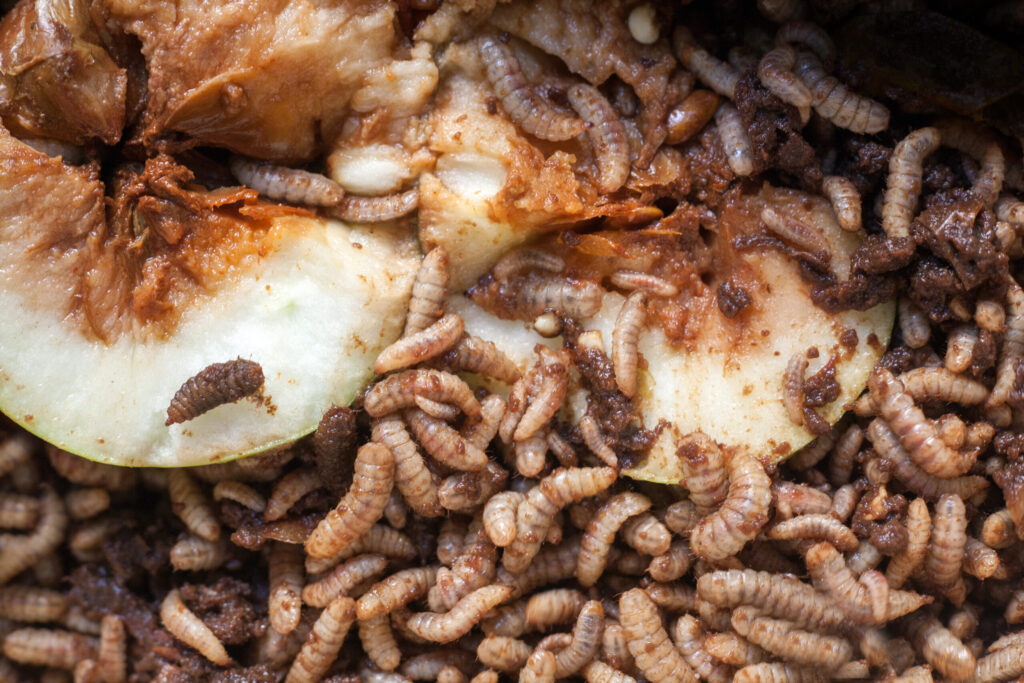The UK faces a significant food waste crisis, with around 10.7 million tonnes of food each year ending up in the trash—enough to feed approximately 30 million people. Despite this surplus, around 8.4 million people in the UK still live in food poverty. Clearly, existing methods of handling food waste aren’t up to the task. Could insects help to tackle this issue?
The Scale of the UK’s Food Waste Problem
The UK produces more food waste than any other European country, generating approximately 10.7 million tonnes annually. Households alone account for about 60% of this waste (6.4 million tonnes), costing approximately £17 billion each year, equivalent to £250 per person or around £1,000 per family of four. Environmentally, this waste generates approximately 18 million tonnes of greenhouse gas emissions annually.
Common food items wasted include bread (900,000 tonnes), potatoes (750,000 tonnes), milk (490,000 tonnes), bananas (190,000 tonnes), and salad and vegetables (170,000 tonnes). Around 39% of household food waste occurs because food is not used in time. The lack of efficient infrastructure and limited redistribution options further worsen the problem.

Why Current Solutions Are Insufficient
Current waste management methods, including landfill disposal, anaerobic digestion (AD), and composting, have notable limitations. Landfills and AD facilities struggle with capacity and efficiency, and environmental concerns remain significant. AD facilities require considerable investment, long construction periods, and have limited flexibility in handling various waste types.
Upcoming regulations will require weekly separate food waste collections from households by March 2026 and from businesses by March 2025. WRAP estimates that by 2030, the UK will face a 1.5 million tonne capacity gap in handling organic waste, highlighting an urgent need for alternative solutions.
Insect Farming: A New Approach
Insect farming, specifically using Black Soldier Fly (BSF) larvae, provides an innovative and sustainable solution. BSF larvae efficiently convert organic waste into useful products like animal feed and organic fertiliser (frass).
These larvae consume food waste rapidly—in just 8-10 days—and can handle various waste types, including fruit and vegetable scraps, bakery leftovers, dairy residues, and manure. Their digestive process neutralises harmful pathogens, making them particularly effective at managing organic waste.
How Insect Farming Reduces Food Waste
Insect farming harnesses natural processes to rapidly reduce food waste volumes and transform them into valuable resources. It effectively addresses challenging waste streams such as supermarket and restaurant surplus, often destined for landfills due to limited redistribution methods. By retaining nutrients within the food system, insect farming offers a highly effective method for reducing food waste.

Economic Impact
Insect farming offers strong economic benefits by providing multiple revenue sources, including high-value animal feed and organic fertilisers, unlike traditional methods such as anaerobic digestion, which rely heavily on government subsidies.
Given the substantial cost of household food waste (£17 billion annually), insect farming presents an economically viable alternative, creating jobs and driving innovation within environmentally sustainable businesses.
Sustainability Benefits
Insect farming significantly reduces greenhouse gas emissions compared to landfill and AD methods. Studies indicate that insect farming has greater carbon reduction capabilities, positioning it as a crucial solution for the UK’s climate goals.
Moreover, converting waste into animal feed and organic fertiliser supports regenerative agriculture, enhances soil biodiversity, and reduces reliance on imported feeds and synthetic fertilisers.
Regulatory Landscape and Future Opportunities
The UK’s regulatory framework is gradually evolving to support insect farming more comprehensively. Recent regulatory changes include the potential allowance of processed insect protein in poultry and pig feeds and broader acceptance of various organic waste streams as permissible feedstocks.
Current restrictions limit certain feedstocks for insect farming, particularly those containing animal by-products. However, ongoing discussions and research may soon allow supermarket and catering waste, substantially increasing insect farming’s practical viability and effectiveness.
Closing Thoughts
Addressing the UK’s food waste crisis demands immediate and practical solutions. Insect farming provides a sustainable, practical, and economically advantageous method for managing food waste. Businesses, policymakers, and communities must support and adopt this innovative approach to effectively address food waste, unlock economic opportunities, and improve environmental sustainability.
Want to learn more about how insect farming is helping reduce food waste in the UK? Watch this quick, informative video featuring Flybox® CEO Larry Kotch—and don’t forget to like and subscribe!
